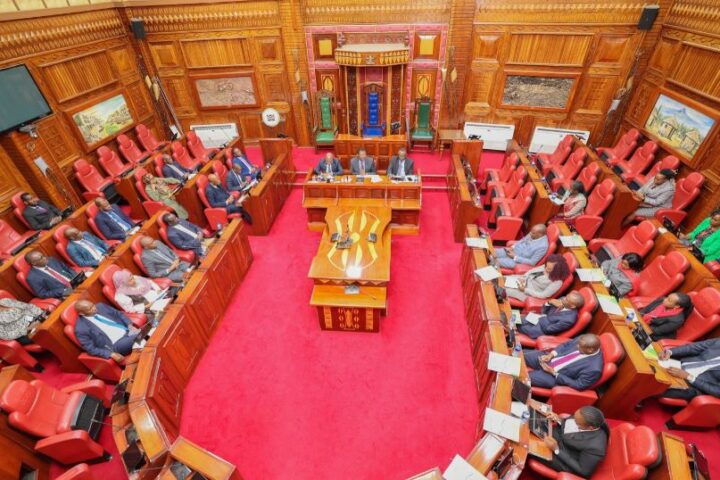
Gender and Public Service Cabinet Secretary Aisha Jumwa, speaking at the unveiling of the Protection Against Domestic Violence Rules on Monday, affirmed the government’s commitment to a zero-tolerance policy regarding GBV.
CS Jumwa said the new rules will create transparent procedures for obtaining protection orders, guaranteeing that survivors can access prompt and efficient legal remedies.
“The government has zero tolerance on GBV so today I want to declare total war on GBV and as a Cabinet Secretary, I want to assure you I will be at the forefront because am a survivor/victim of this, but I have healed and I want the society to be free from GBV,” she said.
“The rules emphasize the importance of prevention and early intervention, underlining the need and responsibility by legal duty bearers to handle survivors with compassion, while ensuring the perpetrators are held accountable for their actions.”
CS Jumwa also revealed that the government is actively working on setting up a GBV survivor’s fund. This fund will operate on a co-financing model in collaboration with the private sector, civil society, and other stakeholders to promote the economic empowerment of GBV survivors.
She pointed out that GBV survivors have faced difficulties in obtaining a P3 form, primarily due to the associated costs, which can lead to further victimization when survivors seek assistance.
“Justice to survivors is at the police and it is very sad that today a survivor is required to pay between Sh1000- 3000 to acquire a P3 form, and since acquiring P3 is the first step to acquiring justice then I request this service be rendered free of charge,” added the CS.
Jumwa emphasized that the Protection Rules against GBV highlight the significance of public awareness and community engagement. She noted that these efforts will help challenge the social norms and attitudes that sustain domestic violence, even as the rule of law is implemented.
“Through targeted awareness campaigns, education initiatives, and community dialogues, we aim to foster a society that embraces equality, respect, and non-violence,” she said.
CS Jumwa urged all stakeholders, including the government, development partners, civil society, community leaders, and every Kenyan citizen, to collectively contribute to the successful implementation of these rules.
According to the Kenya Demographic and Health Survey of 2022, 34 percent of women in Kenya have encountered physical violence since the age of 15.
The data further reveals that 20 percent of women aged 15–19 have experienced physical violence since the age of 15, in contrast to 42 percent of women aged 45–49.








